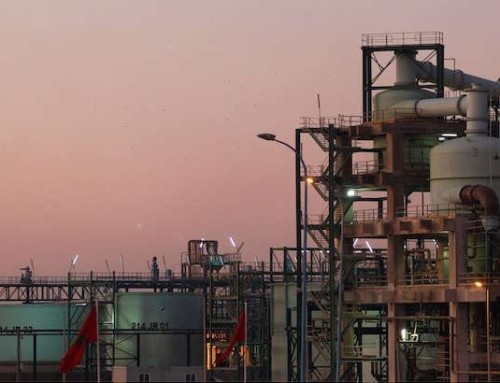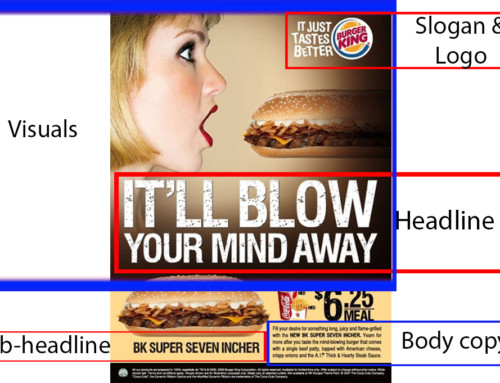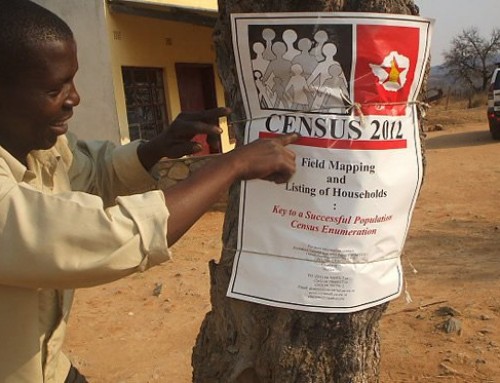To better understand the activities through which a firm develops a competitive advantage and creates shareholder value, it is useful to separate the business system into a series of value-generating activities referred to as the Value Chain and then to analyse these activities by conducting value chain analysis. The Value Chain is shown in the diagram below:
Value Chain Analysis is a process that allows firms to understand the parts of the firm that create value and those that do not. Understanding this phenomenon is important as you will only make money if you are creating value that brings forth more income than the money that you are spending. It is very easy for cash flows to deceive a business owner leading them to think that they are progressing when they are actually bleeding out in some areas. Let us take a look at Value Chain Analysis in the context of our beloved Zimbabwe. I will briefly explain a term first and then analyse it in the Zimbabwean context. In this article I am just going to skim over the surface otherwise there is a lot more to Value Chain Analysis than what I shall reveal. I would want you to decide whether or not this type of analysis is being conducted effectively in Zimbabwe and by which companies?
In Part A of this article we will discuss the primary activities of the Value Chain. In Part B we will take a look at the support activities. As you read through I want you to ask yourself the following questions: 1) Are you conducting Value Chain Analysis completely (going through all the stages) and as a deliberate exercise or you just stumble upon it? 2) Are you conducting Value Chain Analysis proactively in order to stop revenue leakage before it occurs and to identify opportunities for growth or you are taking a reactionary stance thereby losing income?
Primary Activities: These activities directly deal with the creation of products and services.
Inbound Logistics: This is the receiving and warehousing of raw materials or products, and their distribution to manufacturing or customers as they are required.
I have a side gig, I am into multi level marketing because I am a Marketer and there is good money in that industry. In Zimbabwe examples of multi level marketing firms are Avon, Tiens (Tianshi) and Forever Living among others. I went to a warehouse in Msasa to collect my stock for resale. The first days after I had signed up the service was slow because there was only one person to serve us yet there were many customers. This was bad and I considered quitting at some point. However, as time went by the service improved as more people were hired to help with the growing numbers and suddenly we were all happy. This is what happens when Value Chain Analysis is being conducted. If it happened deliberately it means that someone was analysing that touch point and upon realising that it was adding value to the organisation, decided to invest more in it so as to maintain or increase that value. The result is more income for the company involved. Whether that was happening consciously or not is a story for another day. What you should know is that you should do it.
Operations: The process of transforming inputs into finished products and services.
At my day job we have a canteen that is operated by Servcor. We always had issues with them about the quality of their food. The food tastes worse than my own cooking. Imagine, a catering company that makes food that is worse than what a bachelor makes. The canteen is infested with flies at times and the cooks are not friendly. When you leave the canteen someone can tell that you are coming from the canteen because of the ‘canteen smell’ that you carry with you. As a result of this and other issues business has slowed down drastically to the point where one or two people can be found in the canteen. Unfortunately this led to some of the cooks being laid off and it is said that they are going to be reinstated if and when business picks up. This is another example of were Value Chain Analysis is being conducted to some extent. They realised that the value that they were getting from our canteen had gone down and as such they cut on their staff costs. Are you doing this as well or there are contact points at which you are bleeding simply because you are not checking and making the necessary adjustments?
Outbound Logistics: The warehousing and distribution of finished goods.
I visit my rural home in Mhondoro and I like going to the growth point. We have fun there we usually have a braai and I get to meet some of my relatives and adopted friends from the rural areas i.e. adopted as in we are only friends when I am there. Anyway I always used to notice that the soft drinks that were sold in one of the stores were always flat when I drank them. By flat I mean that the soft drinks would have lost that fizz. It makes them taste kind of awkward. I asked my friend who works at Delta about it when I went home and he told me that a soft drink becomes flat when it stays on the shelf for too long. This probably meant that the store was not pushing a lot of sales. So I tried to figure out why Delta would send a truck all the way to the Mhondoro area if sales were not that high. Recently when I went back to the growth point the refrigerator only had water in it. I asked what had happened to the soft drinks and I was told that they were no longer being supplied. The attendant was not being clear but I got the idea that they had been cut off by the supplier. Value Chain Analysis was indeed conducted here and Delta (I would assume) had probably reached the conclusion that the channel was not worth pursuing.
Marketing and Sales: The identification of customer needs and the generation of sales.
I have a friend of mine who is a salesman. He travels using a company vehicle. He tells me that he is only allowed to use the vehicle for work related activities and he leaves it at work when he goes home. However he runs a lot of his own personal errands using that vehicle. When I ask him how he manages to do that he tells me that no one really monitors him. The vehicle has no tracking system and as long as he does not run out of fuel he will be fine. If he does run out of fuel he simply adds his own as it is to his own advantage. The problem I would have if I was the owner of the business is that my assets would lose value at a faster rate owing to wear and tear. It is also evident that Value Chain Analysis is not being conducted in this firm. If this was the case someone would be tracking these vehicles to ensure that they are providing a worthwhile return on investment. Maybe these cars actually cost more to run than they are worth? Maybe there are alternative ways of conducting marketing and sales that are cheaper yet more effective? In this case maybe your vehicles are being used to conduct none core business? I am sure if I were to ask his manager the average cost per sales call per vehicle he would not be able to answer that question. These are just symptoms of a bigger problem that will be lying underneath.
Service: The support of customers after the products and services are sold to them.
Value Chain Analysis is easy to conduct in scenarios where everything is crystal clear. In situations were a little more in depth analysis is required things can get tricky. I like Multichoice and because of that I have a Multichoice decoder. DSTV has many channels even though most of them are not interesting (well, to me). I like to watch soccer, movies and series, especially comedy. They make me feel good after a long day at work as I can just kick back and relax. I do not subscribe to DSTV in Zimbabwe though because it is very expensive. I do however, like calling up their Zimbabwe call center on (04) 32600 so I can hear the lady with the sweet voice saying ‘Welcome to the Multichoice Zimbabwe contact center’. I call them to ask various questions about my ‘foreign’ account. Believe me when I say that I go on and on when I am on the phone. I also like visiting their shops to talk to my friends. I wait in the queue, get to the counter and then just blab with them about non core business. To Multichoice it might not seem like an issue because they are making tons of money and it is easy to relax when that is the case. It does however represent revenue leakage and I wonder what their shareholders would think about that. I would be tempted to think that Value Chain Analysis is not being conducted here because they are definitely not checking to see whether or not they are making the most of their agents. Not checking on the value that they are getting from the agents might mean that they are not checking on the touch points as a whole. That being the case I will not stop going there to have some small talk when I am in town and I am feeling bored.
Analysing your Value Chain is very important as you can ensure that you make the most out of your investment. The activity shows you where to invest and where not to invest. It stops you from losing money before you lose it and shows you where you should channel more of your limited resources. As they say every dollar saved and every dollar made contributes to the bottom line. You will be shocked at how different your figures would look if you conducted this exercise, especially with the help of an expert. If this exercise is not being conducted in your firm then I suggest you demand it. If you do not see a positive change in your figures after you conduct the exercise then contact me. Let me know what you think about this issue in the comments section below.
Thanks
Ruvimbo








Very interesting….looking forward to Part B
Thank you very much for the compliment. Part B is coming soon.
You hit the target again Ruvimbo.
In the case of Servcor I really wonder if they did any VCA or whether I can call theirs a belated rescue scramble. Things should not be left to go south for so long. In the case of Tiens though, the intervention was timely. That shows some pro-activeness. Whether this happened by accident or design is a story for another day as you rightly say. In the case of the marketing guy bleeding his company, it is a symptom of a deeper cancer that is eating through most companies. The poor monitoring and control will soon cause them to implode. DSTV… I do not want to sound apocalyptic. But I feel the writing is on the wall for their demise. With VOD and other options now fragmenting their once hegemonic stranglehold on the African market, it is only a matter of time before they start feeling the squeeze. Their problem? They do not listen to customer complaints. In fact they wouldn’t care less. They are more and more like ZBC, which we hoped they were replacing. They do not seem to be existing for customer satisfaction. The question is, who are they there to serve?
At Carbon Investments we offer design, build and project management services. We deliberately divided our activities into business units so that we can monitor the value chain better. The interfaces we have put between the units (and the various touch points in each SBU) help us get early warnings of poor customer service as well as financial leakages. Yet the three are parts of one organizational system because our goal is to allow our clients to benefit from the 3’s synergy. A client can choose one or any two. Or all three. This translates to better customer satisfaction without stressing the customers in terms of time and other resources which are always at a premium in our increasing fast-paced world.
Please see https://www.facebook.com/taurai.shoko.7/photos
Thank you Sir
Servcor does not conduct VCA because they are reactionary. Another symptom that I have seen is that the supervisor for our canteen was not taken through any course on business such that a concept such as VCA would not be known to him. Tiens is proactive that is why they are making tens of millions of dollars per year. The thing that worries me the most about monitoring and control in local companies is that it is seen as taboo. The most common checks and balances that would be used in a foreign firm are seen at witch hunting in local firms. DSTV certainly does not know who it is supposed to serve as they do not know that we are their kings. When you enter their offices you are treated as a peasant. That is the reason why I chose not to make use of their shops. The consequence to them, among others is them losing the opportunity to increase their share of my wallet as they cannot offer me new products or services since we seldom never come into contact. VOD will be upon them before they know it because in 2014 views on VOD channels in Africa hit the 1 billion mark and this figure continues to grow. The fact that approximately 15 telecom operators are considering entering the VOD marketing will not help them either. These firms probably have more resources than DSTV and thus can price them out of the market. In such a situation customer loyalty will buy you more time to react and galvanise as customers will be less likely to jump at the chance to try something new. I do not think that this is the case at DSTV.
I viewed the photos I have to say you are doing very well, that is some very nice work. One look and I can tell that those buildings are not in Zimbabwe. How can we bring such beautiful buildings to our country? Why are they not there? Are they expensive to build? We have contruction companies creating poor structures here. In Zimbabwe you will find water seeping through the walls in offices of the biggest companies. How does that happen?
Hi Ruvimbo
Thank you very much for your article. i am interested in knowing whether Dairybord Zimbabwe does value chain analysis. If you have any material to that effect, l would greatly appreciate it
Hi Noma
You are welcome. I am waiting for a response from a contact of mine with regards to your question about Dairibord and I will get back to you on that one. My view is that they do not conduct Value Chain Analysis judging by the way that they handled the incident with a unit of their Pfuko product. That would talk to the ‘Marketing and Sales’ aspect of the Value Chain. You can read this article https://plexisstrategy.com/the-pfuko-incident-does-dairibord-zimbabwe-have-a-good-public-relations-strategy/ which will give you an idea of how Dairibord operates.